Can You Freeze Brussels Sprouts?
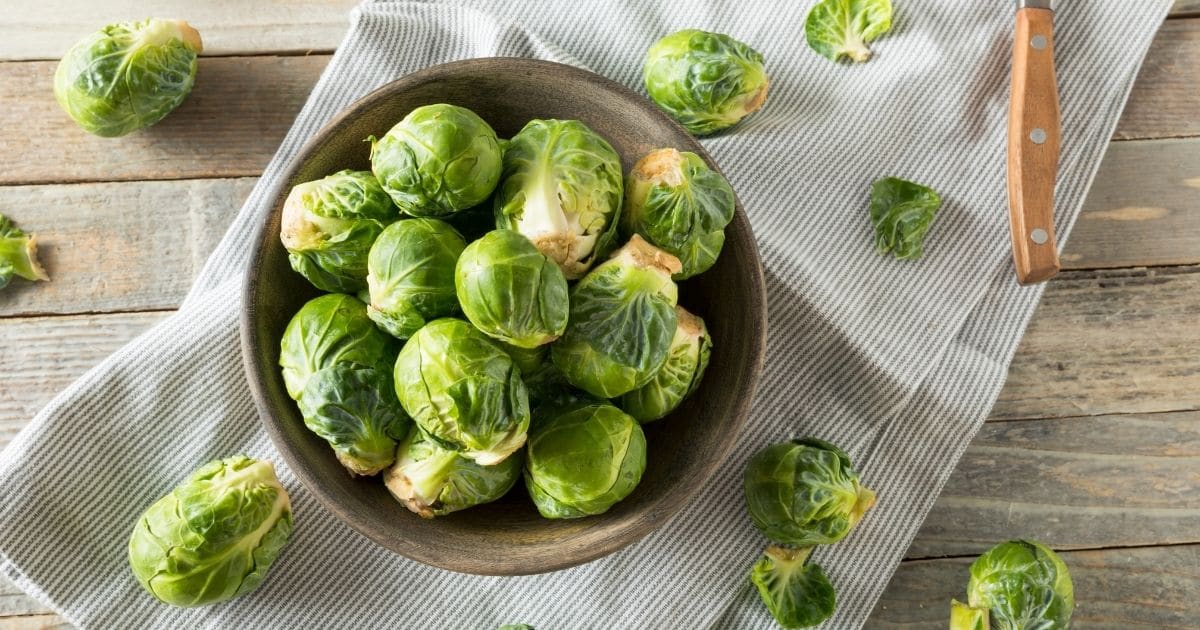
If you have a ton of Brussels sprouts on your hands, then freezing them would be the first thing that comes to your mind. It’s common knowledge that freezing ruins the taste and texture of most vegetables. Which is something nobody wants. So, you might wonder, can you freeze Brussels sprouts?
You most definitely can freeze Brussels sprouts. Although it’s not a straightforward process, it’s reasonably simple. Once done correctly, you can store them for up to twelve months or longer. The taste and nutrition of frozen Brussel sprouts will be just as good as fresh ones.
In this article, I am going to describe the method of freezing Brussels sprouts. Additionally, I will shed some light on the health benefits of frozen Brussels sprouts and talk about some of the drawbacks of freezing them. So, without further ado, let’s begin.
Can You Freeze Brussels Sprouts?
Yes, you can freeze Brussels sprouts. Freezing them shall increase shelf life and add a hint of sweetness. However, you cannot freeze them in the traditional way by just packing and throwing them in the freezer.
Before freezing, there must include a detailed process called blanching, which I am going to talk about next.
How To Freeze Brussels Sprouts
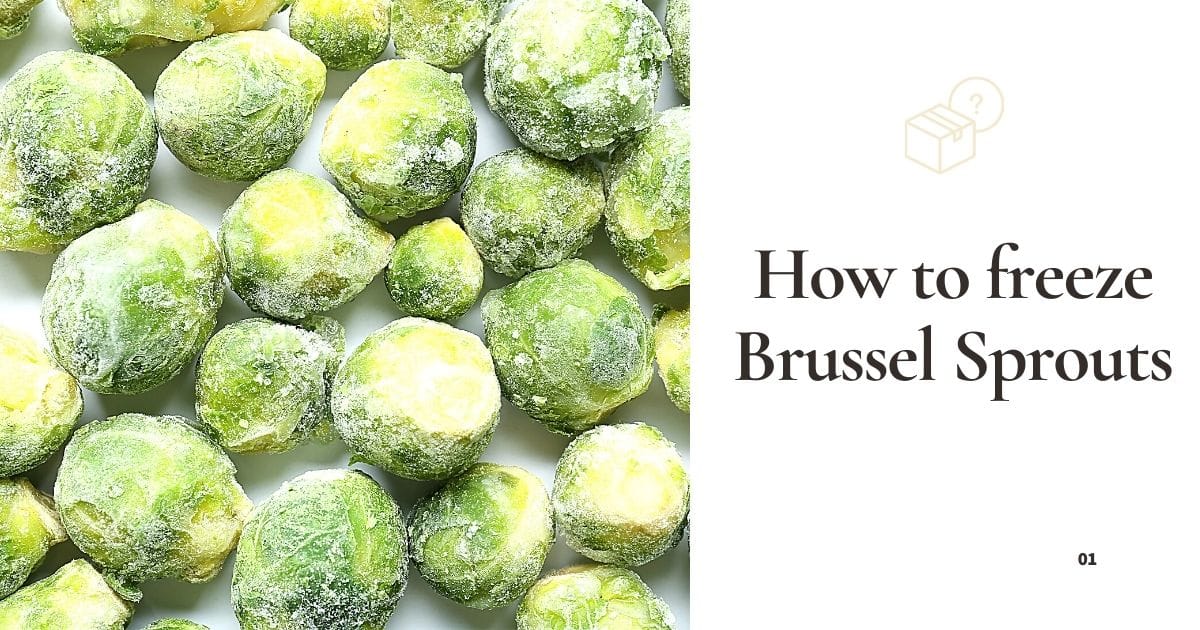
Before freezing Brussels sprouts, you’ll have to blanch them. Blanching is boiling to a high temperature, then cooling suddenly with the help of ice. Here is how to blanch and then freeze Brussel Sprouts:
Step 1
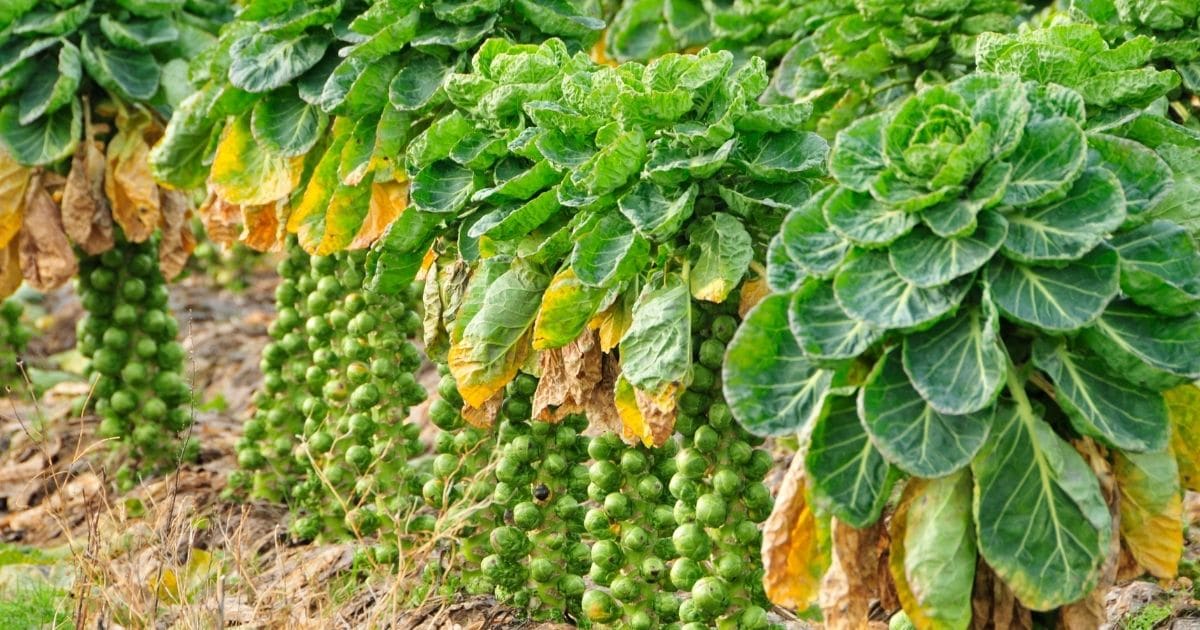
Choose firm and healthy sprouts. Try to pick the freshest ones from the garden. If that’s not possible, try buying the latest supply lot from stores. Healthy sprouts will last longer and yield better results. Their taste and nutrition value will remain unchanged for an extended period.
Step 2
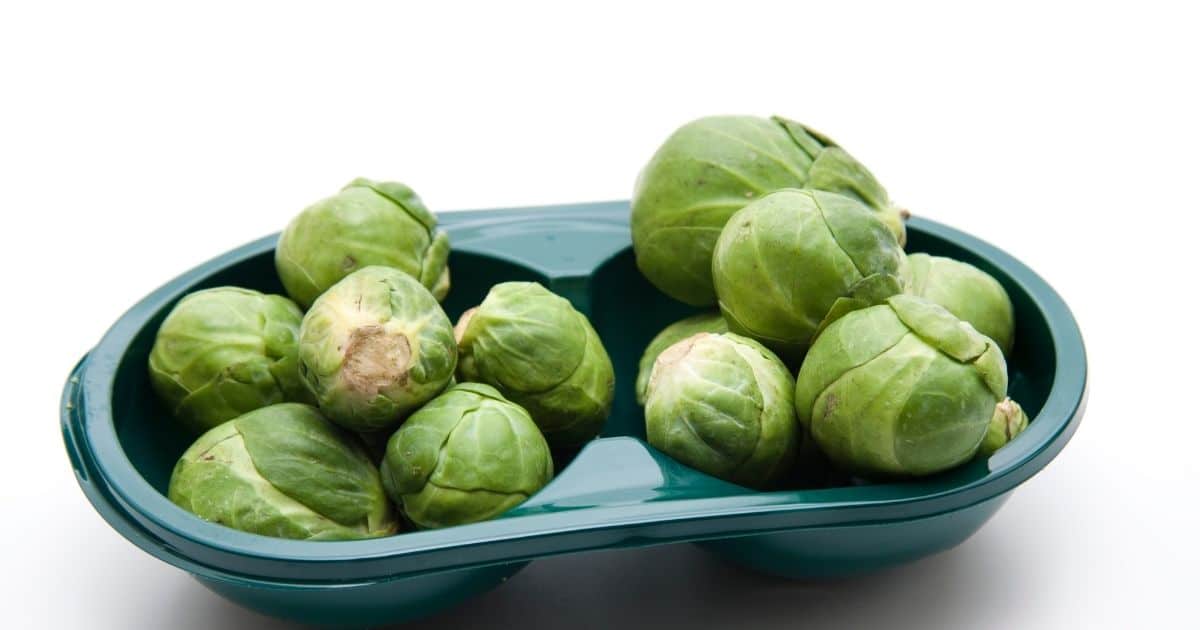
Sort out the Brussels sprouts according to size. Freezing is universal, meaning that you can put anything in the freezer, and it’ll freeze. It’s not the same with blanching. To blanch, you will have to boil them first. The boiling time depends on the size of the sprouts. Proper size selection is essential.
Step 3
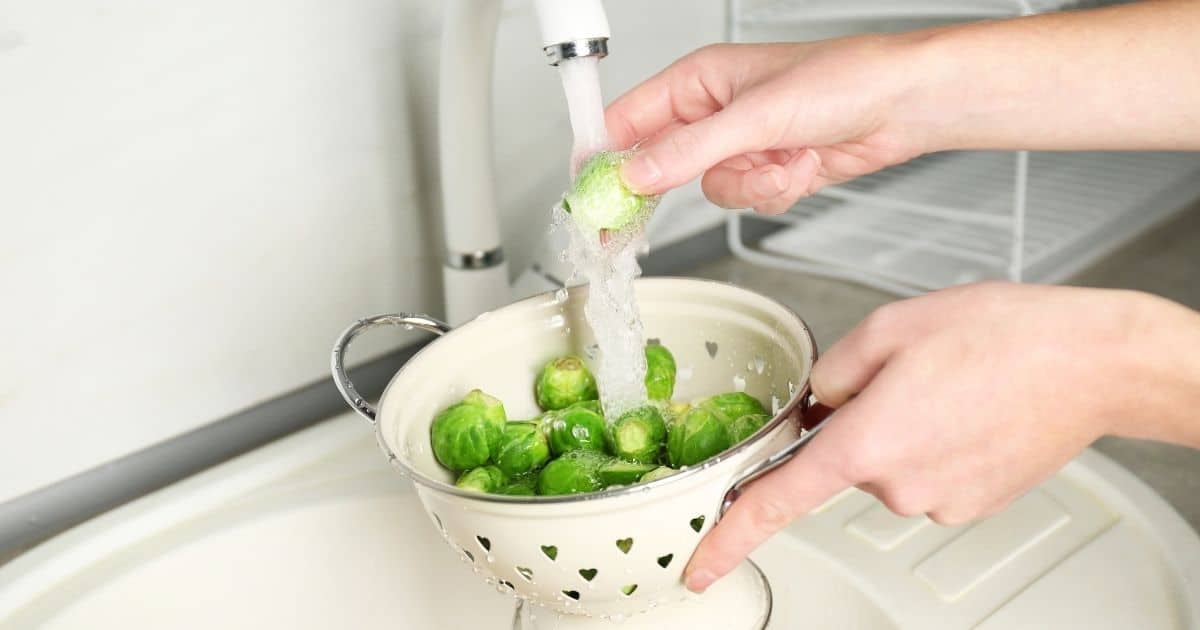
Wash the Sprouts properly. Don’t just dip them in water. Be sure to wash them in running water. This will ensure more efficient cleaning. Also, if there’s any sticky and stubborn dirt, the water flow will remove it. Make sure you reach parts of the sprouts that are hard to access.
Step 4
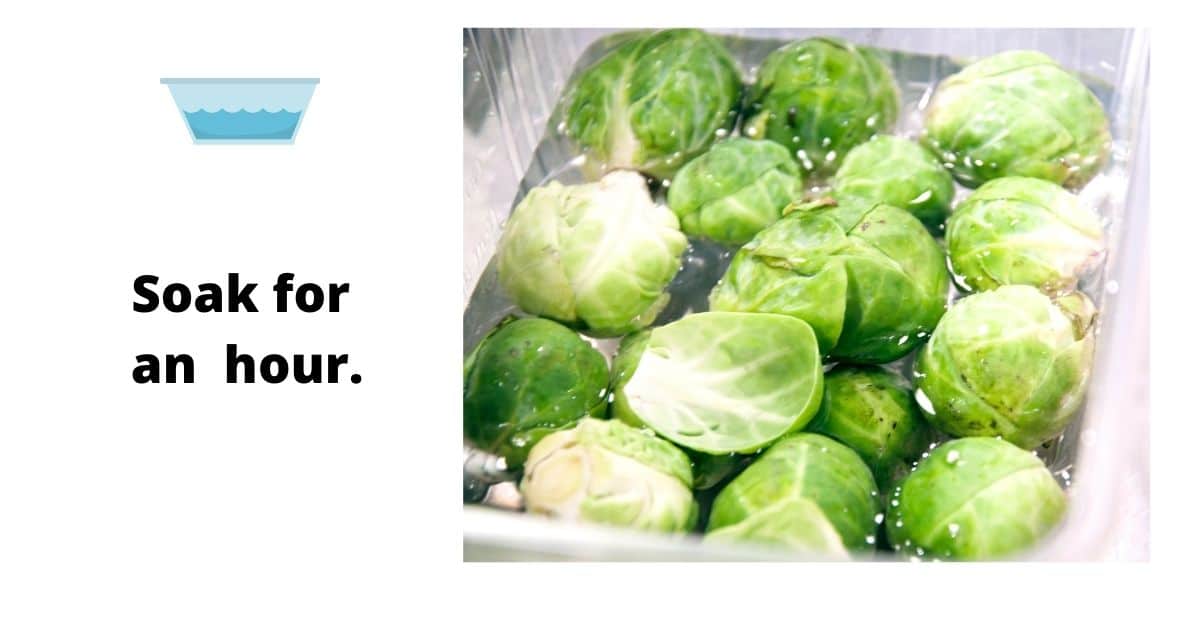
If you suspect any insect-like worm or maggot, saltwater can come to your aid. Mix a tablespoon of salt with one gallon of water. Make sure both the salt and water are fresh and unpolluted. Soak the Brussels sprouts for one hour. It will neutralize any insect that might be hiding in there.
Step 5
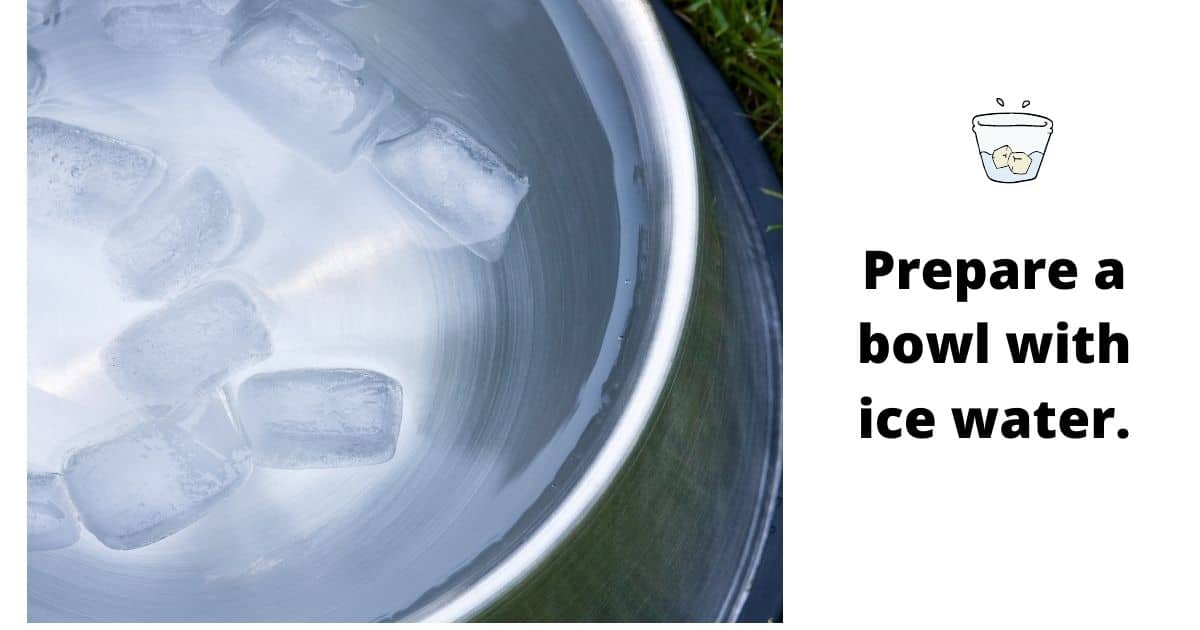
Before boiling, it’s always good to prepare a bowl with ice water. Or ice and water. You will have to soak the boiled Sprouts immediately in ice water. So, keeping the ice water ready ahead will save you from a ton of hassle.
Step 6
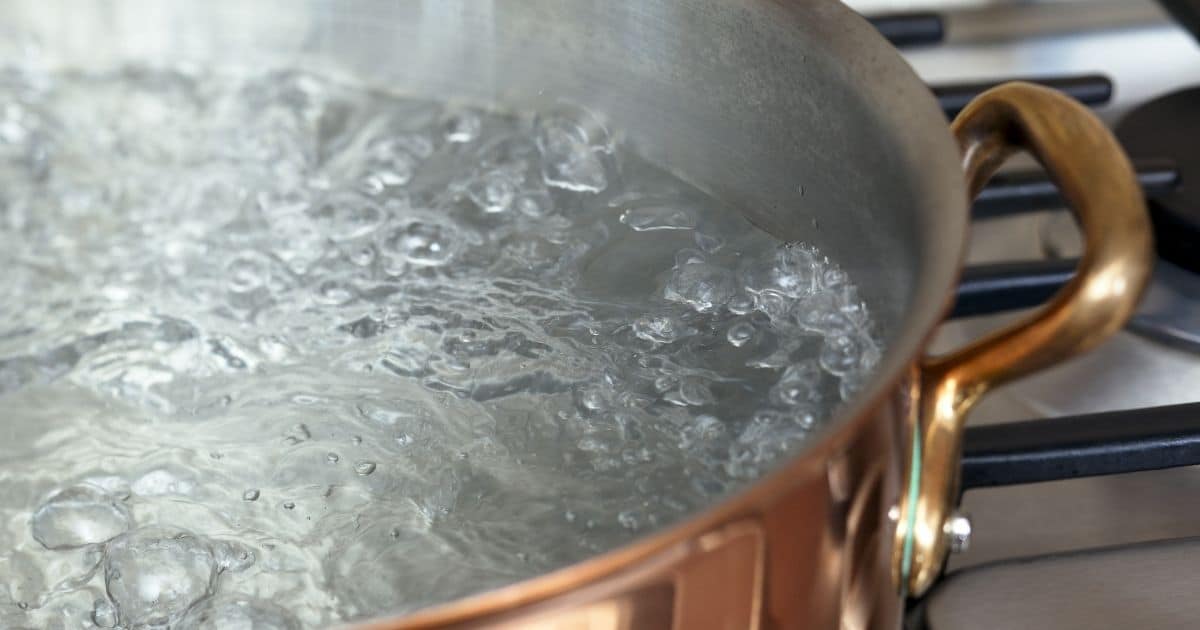
Bring your large pot of water to boil. Remember, don’t start boiling the sprouts and the water at the same time. Heat the water to the boiling point first, then add the sprouts. The sprouts will be heated proficiently by this process, and every portion of the sprout will be boiled equally.
Boiling time depends on the size. I will mention the boiling time of small, medium, and large so that whichever you have, you know what to do. If you want to cook in a separate batch, boil the small Sprouts for 3 minutes, medium ones for 4 minutes, and the large ones for 5 minutes.
If cooking in a separate batch seems too time-consuming, you can cook them together. Just calculate the time and add the sprouts accordingly. First, add the large ones and cook for one minute. Then add the medium ones and after two more minutes, add the small sprouts.
Step 6
After boiling for the appropriate amount of time, take the sprouts out of the boiling water and immediately add them to the ice-cold water. This stops the cooking procedure while retaining the desired color. Do not overcook them as the sprouts will become mushy, deteriorating the taste.
Step 7
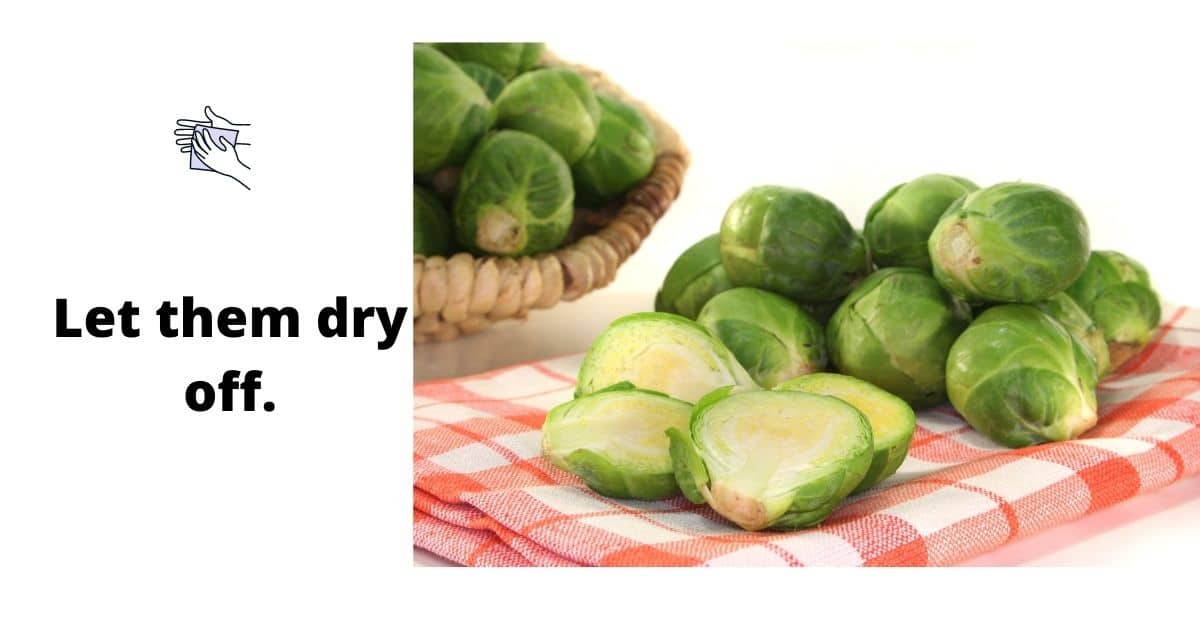
Cool the sprouts completely. Then put them on a large baking sheet and let them dry off. If you don’t dry the sprouts completely before freezing, shells of ice will form around each sprout. That will interrupt the freezing process completely.
Step 8
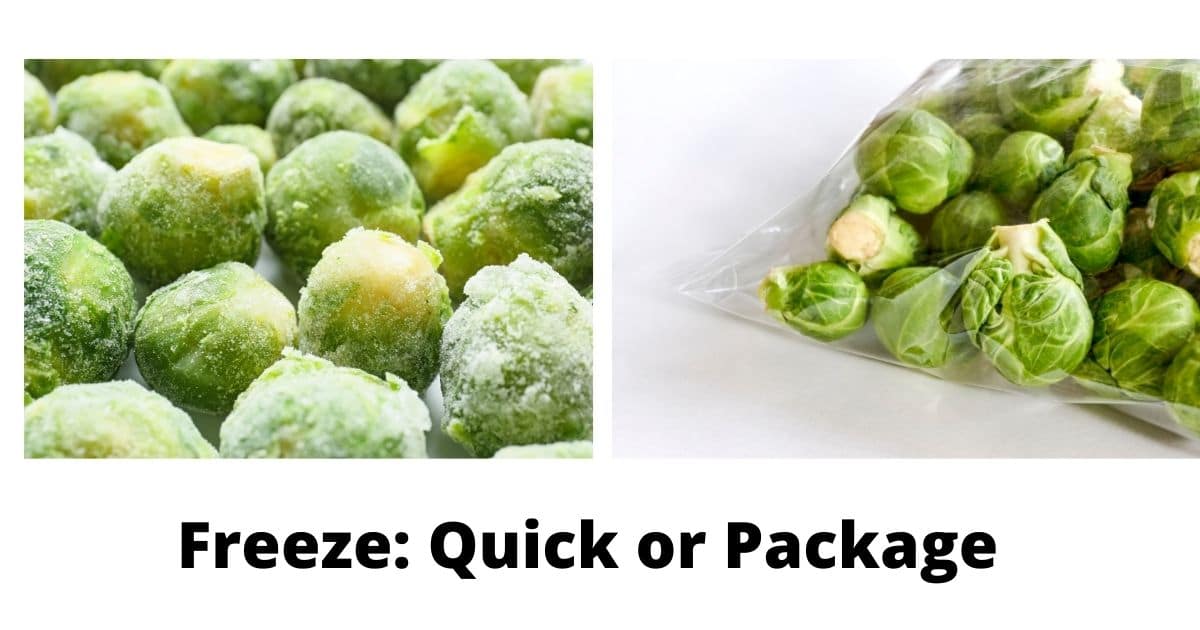
From here on, you have two options; quick freezing and package freezing. Below, I will explain each of these options.
Quick Freezing: If you want to freeze the sprouts fast, quick freezing is the way to go. Quick freezing works by directly exposing the sprouts in the refrigerator. Place a cookie sheet on a tray, then place the sprouts on the sheet. Put the tray in the freezer. After they are frozen, take them out and pack them in a freezer bag.
Make sure no air is incorporated inside the bags. Using a vacuum sealer will come in handy. Do not jampack the bags. Packing the sprouts in one layer is advised. Finally, put it in the freezer for storage.
Package Freezing: Package freezing is the latter part of quick freezing. After drying off completely, place the sprouts directly into freezer bags. Do not over-pack the bags.
Pack the Sprouts in a single layer inside the bags. Also, place the bags in the freezer in a single layer. Avoid putting on top of one another. Remove any incorporated air and then finally throw them in the freezer.
Caution While Freezing Brussels Sprouts
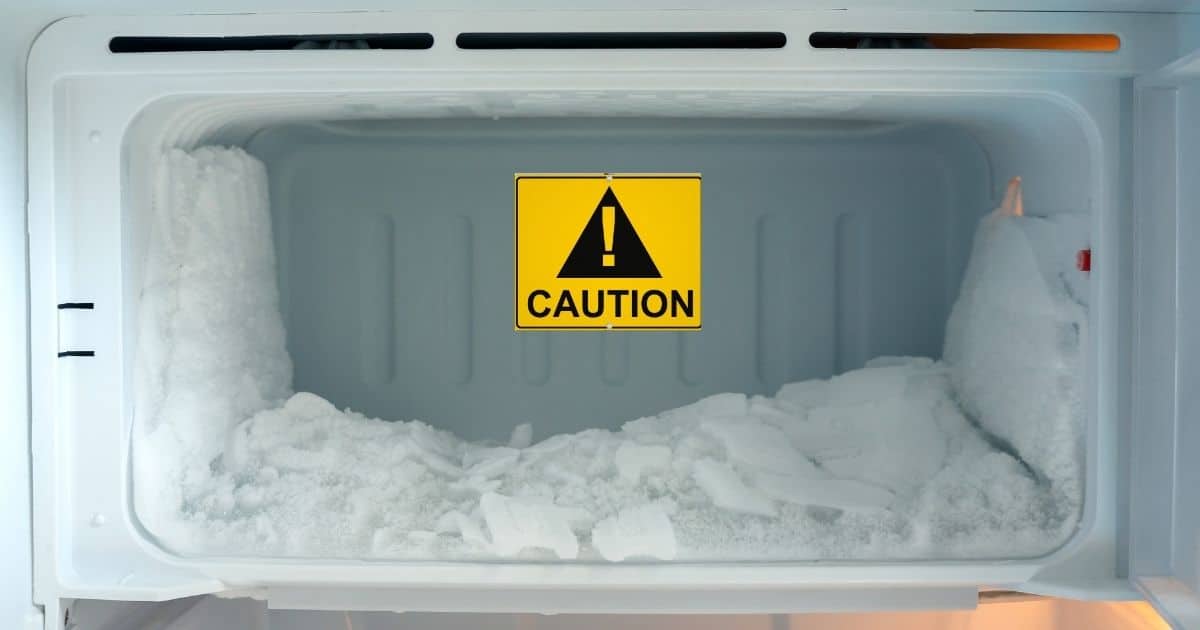
It doesn’t matter if it is your first time or fifth, there can always be some trouble. Here are some of the potential mistakes you can make:
Overcooking: Excessive heat softens everything, and this is no less true for food products. Overcooking Brussels sprouts will yield a mushy appearance. This will completely ruin the procedure. Always make sure not to overcook them. Have a bowl of ice water ready beforehand before removing the sprouts from the stove.
Freezing Wet Sprouts: Completely dry off the sprouts before putting them into the refrigerator. Otherwise, a thin shell of ice will be formed around the sprouts. Also, the sprouts will be stuck with each other in a frozen state.This is especially problematic as you can’t thaw them before cooking. Doing so will make them mushy.
Air Incorporation: When packing the sprouts, use a vacuum sealer. This will make sure no air is stuck inside. Doing so will get you garden-like fresh sprouts when you eat them.
Delay Putting in Ice water: The purpose of putting them in ice water quickly is to stop the cooking procedure. The boiling must be halted right after the required time limit has been reached. Failure to do so will result in mushy sprouts. So do not delay putting them in ice water if you want firm and fresh sprouts.
Thawing Before Cooking: Never thaw the sprouts before cooking. Take them out of the freezer and cook them straight away. Roast, seer, or fry, but don’t thaw them. If you do, the sprouts will have a mushy consistency unsuitable for eating.
Food Poisoning: It is worth mentioning that sprouts may contain a possibility of food poisoning. So, anyone with immunological problems like diabetes, arthritis, or lupus should avoid it. (Source: Healthline)
Health Benefits of Frozen Brussels Sprouts
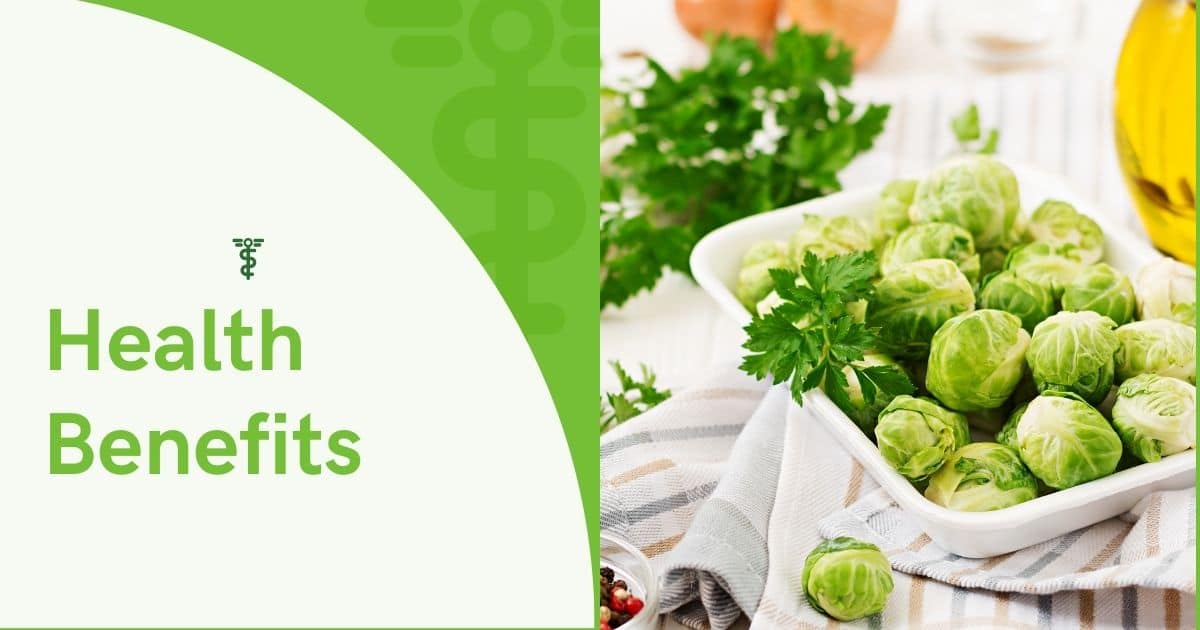
Contrary to popular belief, frozen Brussels sprouts are full of nutrition. Plus, they are super easy to prepare. In a 70-gram serving size, there are approximately 3-gram proteins, 29 calories, 3-gram carbohydrates, 3-gram fiber, and 2-gram sugar. There is no fat and salt, which makes them ideal for cardiovascular patients. They are also suitable for people who are trying to lose weight.
Frozen Brussels sprouts are also full of vitamins, minerals, and other micronutrients. They contain vitamin B6, vitamin B9, vitamin K, and folic acid. They also have vitamin K 80 percent of RDA. So frozen sprouts are a must for anyone suffering from any bleeding disorder or bone disease as vitamin K plays a vital role in both.
Frozen Sprouts also contain phosphorus and two types of phytochemicals. These protect from heart disease and maintain healthy blood pressure, and are also good for our kidneys and liver. Quercetin is also beneficial for allergy patients like asthma, hay fever, allergic rhinitis, atopic dermatitis, etc.
Brussels sprouts offer adequate amounts of phosphorus to boost your neurological status. At the same time, the fibers will aid your bowel function. It is beneficial for constipation patients. Brussels sprouts are also known to help depression, anxiety, suicidal thoughts, etc (Source: The Recovery Village)
Conclusion
This seasonal vegetable is loved by many people all over the world. You can make some delicious and exotic dishes using Brussels sprouts. What makes them more convenient is the cooking method – no need to thaw them. Just take them out of the freezer and cook them as you like. You can freeze Brussels sprouts to enjoy them all year round without sacrificing taste and texture.
One thing I will recommend is to blanch them before freezing. Though it might require a bit of extra work, it is worth the effort. Blanching will improve not only their texture but also their taste compared to freezing raw sprouts.
Hopefully, this article will help you to enjoy this delicious and nutritious vegetable whenever you like!